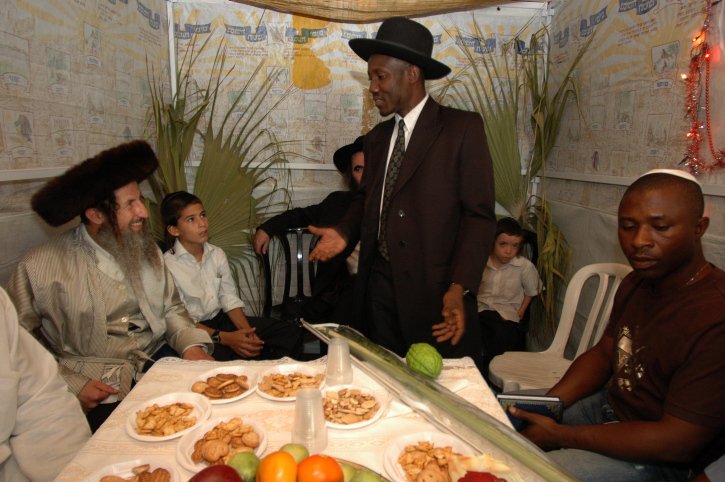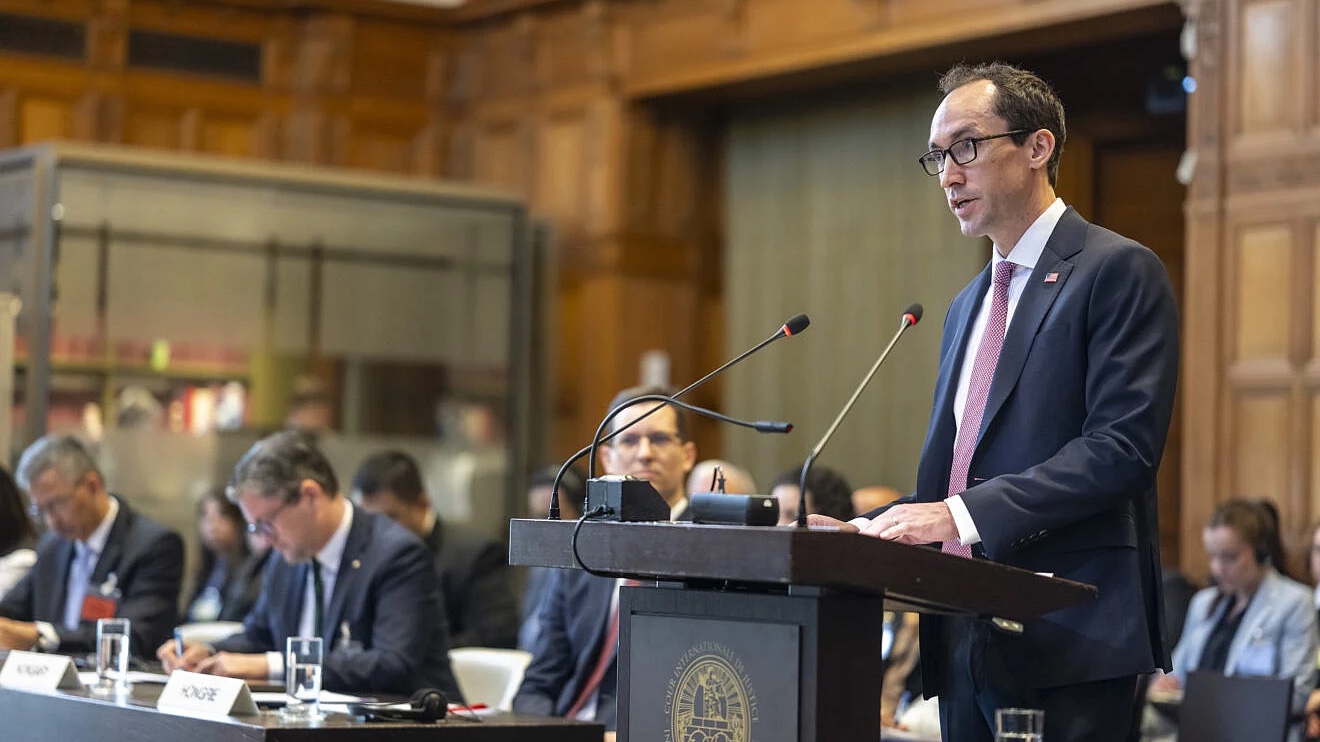Reform is set to take place in the way that the State of Israel performs conversions to Judaism.
The conversion reform is headed by Minister of Religious Affairs Matan Kahana (Yamina), himself a religiously observant Jew. The reform seeks to allow for local Orthodox rabbis, or chief rabbis of cities and towns, to independently perform conversions, which will be recognized by the state and the Chief Rabbinate. Nevertheless, a council within Israel’s Chief Rabbinate and the Chief Rabbi will still have the authority to approve or disapprove individual conversions.
The issue of Jewish conversion in Israel is highly sensitive as it touches on the question of who has the authority to determine who can become Jewish. Following the announcement of Kahana’s plans, there was a wave of criticism in particular from Haredi rabbis and political parties such as United Torah Judaism (UTJ). However, other influential figures and rabbis in religious Zionist circles such as Rabbi Eliezer Melamed of Har Bracha publicly announced his support saying that he believes the reform will “add Torah and mitzvot in Israel and that because of it many (non-Jewish) immigrants will return to their Jewish roots.”
Like any significant change to issues of religion and state, the reform could not enter into advanced stages of implementation without stirring up a political storm.
On December 24, Minister Kahana announced that he will not be extending the contract of the current head of Israel’s Conversion Authority, Rabbi Moshe Weller, saying that “he is not the right person to lead the implementation of the new reform.” Kahana’s announced came following a personal conversation the two held in which it was understood that Ashkenazi Chief Rabbi David Lau will oppose the plan. Rabbi Weller is a close associate of Rabbi Lau.
In Weller’s place, Kahana appointed Rabbi Benayahu Brunner. Rabbi Brunner is the head of a yeshiva and Av Beit Din (head of rabbinical court) for conversions in Tsfat (Safed), has a PhD in Bible from Haifa University and is affiliated with a liberal group of Orthodox rabbis called Tzohar.
His appointment, especially due to his association with Tzohar, sparked outrage amongst Haredi rabbis and politicians as well as other conservative Jewish figures.
Who is Tzohar and what to does their viewpoint have to offer to Israel’s Conversion Authority?
According to their official website, Tzohar has over 1,000 member rabbis whose mission is to “foster vibrant and inspiring Jewish identity to guarantee the Jewish future of the State of Israel.” They seek to shape Jewish life in Israel through advocacy and legislation and identify themselves as a “socially conscious movement securing an ethical, inclusive, and united Jewish society.”
The organization was founded in 1995 following the assassination of Prime Minister Yitzhak Rabin, a traumatizing event for Israeli society. Deep divisions in Israeli Jewish society were sowed surrounding the assassination. There was deep animosity and confusion concerning religious practice and identity, especially its relationship with Israeli politics. This is perhaps partially due to the fact that the assassin, Yigal Amir, was a member of the religious-Zionist community and this subsequently raised many questions concerning the values of the observant Jewish community in Israel.
Tzohar sees that the schisms in Israel’s Jewish society have led to many Jews feeling “alienated within the very country that was founded to be a home for all Jews.”
Regarding Israeli society, they are already heavily involved in two central issue-areas at the intersection of Judaism and state: kashrut (kosher dietary laws) and marriage.
Anyone who decides to take a stroll around the streets of Jerusalem and Tel Aviv will probably notice Kosher certificates that are not certified by the Chief Rabbinate, but instead by Tzohar. Out of distain for the Rabbinate institution, many businesses have taken an alternative route by offering halachically (Jewish law) Kosher food, however, through Tzohar and not through the Rabbinate, the only rabbinic institution historically recognized by the government. While adhering to strict halachic guidelines, they are perceived as being much more approachable than the Chief Rabbinate. After years of practice and exponential growth, the current Kashrut reform will end the Rabbinate’s monopoly and allow for other rabbinic bodies like Tzohar to issue Kosher certificates.
In addition to kashrut, Tzohar is very active in Jewish marriage in Israel. Today, although only the Chief Rabbinate is able to perform and approve Jewish marriages, Tzohar provides a bridge between the public and the Rabbinate. For couples who do not want to directly deal with them, they can receive guidance and complete the entire process while being accompanied by Tzohar rabbis—from registering to performing the ceremony under the chuppah. The couples that use this service come from both religious, traditional and secular backgrounds. It is again important because it provides an accessible channel through which couples from varying backgrounds can approach Jewish tradition comfortably.
Tzohar is an organization that remains faithful to Jewish tradition and Halacha but is far more approachable and accessible for the average Jewish Israeli today than the Chief Rabbinate. For many Jewish business owners interested in keeping kosher and couples seeking a traditional Jewish wedding, Tzohar was the main factor in allowing them to do so. At the end of the day, Tzohar provides an alternative path to Judaism, bringing many Jewish Israelis closer to Jewish tradition and thereby contributing to preserving Jewish identity in the Jewish State.
Thus, just as Tzohar has contributed greatly to the areas of marriage and kashrut, the appointment of Rabbi Benayahu Brunner to head the Conversion Authority, will do the same. The ‘change’ government is providing opportunities for a more practical and accessible Judaism for Israeli society – something desperately needed for preserving the Jewish identity of the country for years to come.















Google Translation: Tzohar gives me the prospect of becoming a Jew – very good!
Tzohar gibt mir die Aussicht, Jude zu werden – sehr gut!